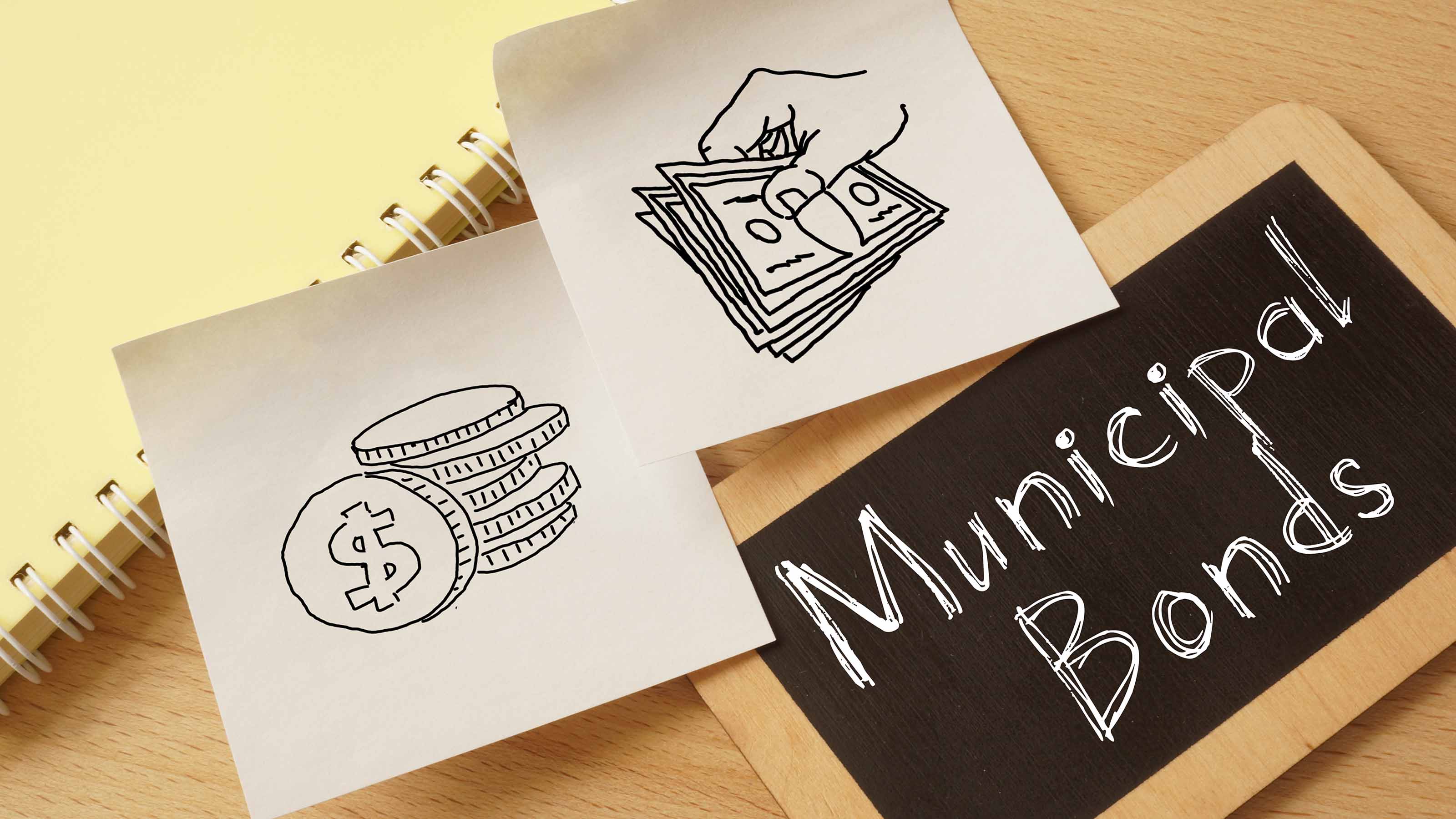A Great Place to Stash Your Cash
FPA New Income offers a decent yield and it's one of the safest bond funds you can buy.

Profit and prosper with the best of Kiplinger's advice on investing, taxes, retirement, personal finance and much more. Delivered daily. Enter your email in the box and click Sign Me Up.
You are now subscribed
Your newsletter sign-up was successful
Want to add more newsletters?

Delivered daily
Kiplinger Today
Profit and prosper with the best of Kiplinger's advice on investing, taxes, retirement, personal finance and much more delivered daily. Smart money moves start here.

Sent five days a week
Kiplinger A Step Ahead
Get practical help to make better financial decisions in your everyday life, from spending to savings on top deals.

Delivered daily
Kiplinger Closing Bell
Get today's biggest financial and investing headlines delivered to your inbox every day the U.S. stock market is open.

Sent twice a week
Kiplinger Adviser Intel
Financial pros across the country share best practices and fresh tactics to preserve and grow your wealth.

Delivered weekly
Kiplinger Tax Tips
Trim your federal and state tax bills with practical tax-planning and tax-cutting strategies.

Sent twice a week
Kiplinger Retirement Tips
Your twice-a-week guide to planning and enjoying a financially secure and richly rewarding retirement

Sent bimonthly.
Kiplinger Adviser Angle
Insights for advisers, wealth managers and other financial professionals.

Sent twice a week
Kiplinger Investing Weekly
Your twice-a-week roundup of promising stocks, funds, companies and industries you should consider, ones you should avoid, and why.

Sent weekly for six weeks
Kiplinger Invest for Retirement
Your step-by-step six-part series on how to invest for retirement, from devising a successful strategy to exactly which investments to choose.
A lot of people have a lot of money in banks and money market funds earning nothing. Even worse, their cash is slowly losing ground to inflation. I think I've found a good place to stash some of that money: FPA New Income (symbol FPNIX). The fund yields 2.6%, not bad in today's environment. But it's certainly not a no-risk proposition.
For starters, New Income isn't federally insured. And the fund's price changes every day based on the market prices of its holdings. But since FPA took over management of New Income in 1984, the fund has never lost money in a calendar year. So far in 2013, the fund has returned 0.19% (all returns are through June 25).
That doesn't mean the fund never loses money. Since FPA took over management of the fund in 1984, New Income's worst monthly loss was 2.3%, in 1985, and its worst quarterly loss was 3.0%, in the third quarter of 2003. Since 1984, the fund has finished in the red in 15% of all months and 7% of all quarters. So New Income carries some risk of loss, but the risk is limited enough to make this fund a solid substitute for cash for some investors.
From just $107.88 $24.99 for Kiplinger Personal Finance
Become a smarter, better informed investor. Subscribe from just $107.88 $24.99, plus get up to 4 Special Issues

Sign up for Kiplinger’s Free Newsletters
Profit and prosper with the best of expert advice on investing, taxes, retirement, personal finance and more - straight to your e-mail.
Profit and prosper with the best of expert advice - straight to your e-mail.
The primary goal of the fund's managers is to avoid losses over any 12-month period. Their secondary goal is to return, over a five-to-ten-year period, one percentage point more per year than the increase in the consumer price index. "We put a huge focus on capital preservation," says co-manager Tom Atteberry. That focus only sharpened after the 2008 financial meltdown.
Atteberry, who has co-managed the $5 billion fund since 2004, and colleague Robert Rodriguez think bonds are wildly overpriced. Over the past month and a half, some of the air has come out of the bond bubble. From May 2 through June 25 the yield on the benchmark ten-year Treasury bond soared from 1.62% to 2.61%. Because bond prices move in the opposite direction of bond yields, most bond funds experienced significant losses during that period. (FPA New Income lost 0.8% during that period.) But the correction in bond prices still has a way to go, in my opinion.
Consider a few numbers. Since 1962, the ten-year Treasury bond has yielded 6.3%, on average. The one-year Treasury bill currently yields 0.16%. Its average yield since 1953 has been 5.0%. High-yielding "junk" bonds currently yield about 6.9%. The average yield has been more than 10%.
Atteberry, Rodriguez and three analysts assemble their portfolio with extreme care. To start with, they don't buy long-term bonds. If yields on bonds similar to the ones in New Income were to rise by one percentage point, the fund would probably fall just 1.6% in price. But you'd still collect interest, and over time those payments would rise as the managers reinvested maturing bonds in higher-yielding issues.
The fund is an interesting stew of bonds with two common factors: They're all fairly low risk, and they all have solid collateral behind them. "We're belt-and-suspenders investors," says Atteberry.
Government-backed mortgage securities from Fannie Mae and Freddie Mac account for 44% of assets. The managers carefully study the loans with an eye toward making sure they will never need that government backing. Another 16% of assets are in commercial mortgage-backed securities that are backed by Uncle Sam.
[page break]
The fund does have a chunk of assets in nongovernment-backed loans. For instance, 5% of the fund is in private commercial mortgage-backed securities. The borrowers, however, are luxury resort hotels in good locations that seem highly likely to pay off their debts, such as the Royal Hawaiian on Waikiki Beach.
The fund also owns some securitized used-car loans. Atteberry says the company that originally financed the loans has agreed to take the first 15% in losses if car buyers default on their loans. What's more, he says, "People pay on their cars before they pay on their houses or their credit cards." And if they don't, the cars can usually be sold for enough to pay off holders of the securities.
What could go wrong? The fund, in theory, is virtually impervious to rising interest rates. But that low interest-rate sensitivity will be tested if rates spike sharply. Similarly, the average credit quality of the fund's holdings is triple-B, which is near the bottom of the investment-grade ladder. If the economy slips into recession, the sturdiness of New Income's bonds will be tested.
For many years, New Income charged a sales fee. The fund converted to no-load status on April 1. Expenses, at 0.57% annually, are reasonable. But note that New Income levies a 2% redemption fee if you take your money out within 90 days of purchase. There's no such thing as a no-risk bond fund. But New Income is a low-risk fund. I don't think you'll find another fund that yields as much and carries less risk.
Don't expect to get rich owning New Income. Over the past five years, the fund returned an annualized 2.7% &mdash: about half the return of the Barclay's U.S. Aggregate Bond index. In the coming year or two, I expect the fund's annual return to be even less, perhaps 2.5%.
But 2.5% is better than what you earn nowadays in money market funds and almost all bank accounts. I think the risks are small enough to make New Income a fine alternative.
Steven T. Goldberg is an investment adviser in the Washington, D.C. area.
Profit and prosper with the best of Kiplinger's advice on investing, taxes, retirement, personal finance and much more. Delivered daily. Enter your email in the box and click Sign Me Up.

-
 Betting on Super Bowl 2026? New IRS Tax Changes Could Cost You
Betting on Super Bowl 2026? New IRS Tax Changes Could Cost YouTaxable Income When Super Bowl LX hype fades, some fans may be surprised to learn that sports betting tax rules have shifted.
-
 How Much It Costs to Host a Super Bowl Party in 2026
How Much It Costs to Host a Super Bowl Party in 2026Hosting a Super Bowl party in 2026 could cost you. Here's a breakdown of food, drink and entertainment costs — plus ways to save.
-
 3 Reasons to Use a 5-Year CD As You Approach Retirement
3 Reasons to Use a 5-Year CD As You Approach RetirementA five-year CD can help you reach other milestones as you approach retirement.
-
 What Fed Rate Cuts Mean For Fixed-Income Investors
What Fed Rate Cuts Mean For Fixed-Income InvestorsThe Fed's rate-cutting campaign has the fixed-income market set for an encore of Q4 2024.
-
 The Most Tax-Friendly States for Investing in 2025 (Hint: There Are Two)
The Most Tax-Friendly States for Investing in 2025 (Hint: There Are Two)State Taxes Living in one of these places could lower your 2025 investment taxes — especially if you invest in real estate.
-
 The Final Countdown for Retirees with Investment Income
The Final Countdown for Retirees with Investment IncomeRetirement Tax Don’t assume Social Security withholding is enough. Some retirement income may require a quarterly estimated tax payment by the September 15 deadline.
-
 Dividends Are in a Rut
Dividends Are in a RutDividends may be going through a rough patch, but income investors should exercise patience.
-
 Municipal Bonds Stand Firm
Municipal Bonds Stand FirmIf you have the cash to invest, municipal bonds are a worthy alternative to CDs or Treasuries – even as they stare down credit-market Armageddon.
-
 High Yields From High-Rate Lenders
High Yields From High-Rate LendersInvestors seeking out high yields can find them in high-rate lenders, non-bank lenders and a few financial REITs.
-
 Time to Consider Foreign Bonds
Time to Consider Foreign BondsIn 2023, foreign bonds deserve a place on the fringes of a total-return-oriented fixed-income portfolio.
-
 The Five Safest Vanguard Funds to Own in a Volatile Market
The Five Safest Vanguard Funds to Own in a Volatile Marketrecession The safest Vanguard funds can help prepare investors for market tumult but without high fees.